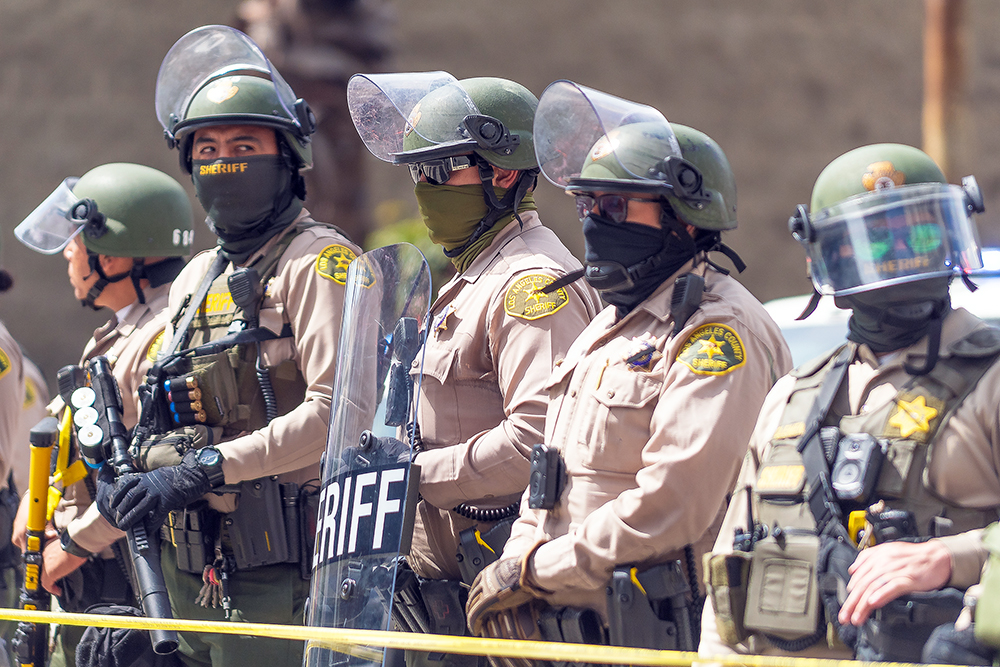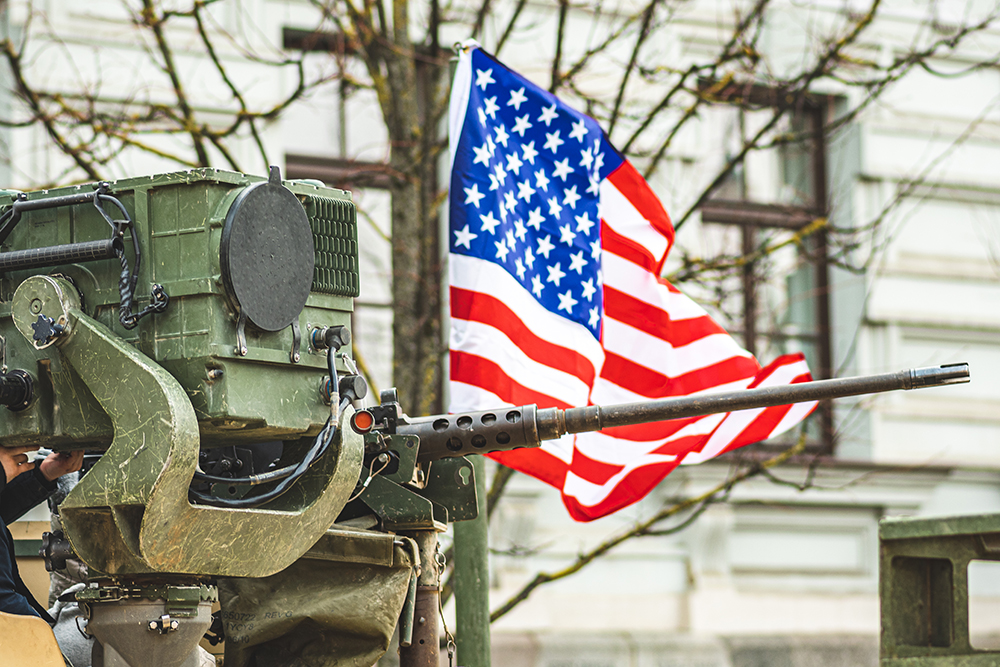“Freedom isn’t free” is a slogan I have heard much of my adult life, almost always associated with praising our military and the sacrifice veterans have made. We are well educated about soldiers freeing us from British tyranny in the American Revolution and keeping us free from the Nazis and Japanese in the Second World War. The question of this moment is, what are the greatest threats to our freedom in the here and now, and what price will they demand from us? It is time to reconsider how we think about the price of freedom and who needs to pay it.
Living near Washington, D.C., as I do, I see Congress in action at committee meetings and votes. Many of these legislators clamor incessantly for preparations for war with China, Russia, and Iran, while cheering on the undeclared and illegal wars in concert with Israel against Palestinians, Yemenis, Lebanese, and Syrians. That cheering makes war inevitable, as we see with this latest attack on Iran. Neither Iran nor any of these nations is a significant military threat to the U.S. but perhaps China is, which has not shown hostility to the U.S. except when we carry out war games and build dozens of military bases in their neighborhood. The only serious foreign threats to the U.S. that I see are the 12,000 nuclear weapons in nine different nations, which can annihilate civilization. That threat could be reduced or eliminated by reducing the number of nuclear weapons or eliminating them altogether. Instead, we are spending a fortune building new ones.
Less apocalyptic but more likely threats to freedom loom large in the rise of authoritarianism and the political divisions it thrives on, the flouting of the Constitution and the rule of law (both domestic and international), environmental degradation, potential pandemics, and increasing wealth inequality impoverishing millions. When ideologies make it hard to talk to neighbors and family, we lose trust in our common identity as Americans. When neighbors are kidnapped off the streets and sent to foreign prisons without due process and against court orders, our loss of trust in government becomes severe. Supporting genocide overseas diminishes our global reputation.
As I look at these threats, a strong military cannot protect us from any of them. In fact, huge expenditures on the military contribute directly to several of these threats through its monstrous environmental footprint and the way it stimulates potential enemies to arm themselves against us. It contributes indirectly by siphoning resources that could otherwise be used for tackling the many serious problems we face. Worst of all, the military can be co-opted by a tyrant, something that we saw being done in real-time with the ridiculous and costly parade on June 14th. Soldiers who find identity in this kind of display will be the ones who enforce our loss of freedom, unless they ask themselves a question.
I urge every member of the armed forces and police to consider, what is your red line? What order will you refuse to follow because it violates your oath to the constitution, your duty to protect the common good, or even defend basic human dignity? I think of the police officers who surround every demonstration I witness. They are usually polite, protect people from traffic, and sometimes intervene with counter protesters. Most of the time I appreciate their work. My question to them is, what will you do when they give you an order to arrest us for no more than we are doing today?
What will you do when they order you not just to arrest us but to intentionally harm us?
What will you do when they tell you to deport us to concentration camps?
Because they are either the prime enforcers of our freedom and safety or instruments of violence and tyranny, each armed officer needs to know their red line ahead of time, so when the order comes they do not follow it blindly.
Since armed forces can’t protect us from most modern threats, each of us must define our own red line.
How long we will look the other way when our neighbors are abducted, our colleagues doing useful work in science and medicine are laid off, and protest is criminalized?
When will we stop cooperating with violations of the law and brutality toward our neighbors? By cooperation I mean keeping our heads down and not speaking out and going about our business as though this is not our problem. We saw millions recognize their red line and demonstrate on June 14th. Will enough of our neighbors join us, and will demonstrations be enough?
How can we invite others to join us in using tools more powerful than demonstrations? Proven tactics from the huge array of nonviolent action: things like blockading illegal deportations, blocking illegal shipments of weapons, or refusing to pay taxes until the rich pay their fair share, and the government obeys the law.
The single most powerful instrument for freedom is probably the general strike that can shut down the entire system or at least the worst parts of it. We need to learn about such things from our fellows in the unions and begin to train intensively to become effective.
We will do well to stop thinking that the only thing between us and tyranny are the police and the military. The price of freedom needs to be paid by all of us. Let’s gather our neighbors and support one another in taking the bold and sometimes risky actions we need to preserve our freedom.
John Reuwer, MD, is adjunct professor of conflict resolution, St. Michael’s College, Colchester, Vermont.


